Why does everyone make such a big deal about protein?
Protein does a lot more than just building muscles. Proteins contribute to cell growth, repair, and maintenance. They also act as enzymes and hormones. They help maintain fluid and electrolyte balance and play an essential role in maintaining a strong immune system. Proteins act as carriers for many vital nutrients in the body. They can also be used to make neurotransmitters like melatonin and serotonin. These are just some of the many functions of protein, so needless to say, it’s a pretty important macronutrient.
But, here’s the thing – for proteins to be able to do all of those jobs, they need to be consumed with adequate amounts of carbohydrates and fats. When insufficient energy is available (calories from carbs and fats), the body is forced to use proteins as an energy source, limiting their availability for the functions described above. TLDR; Don’t be afraid to eat carbs!
Do I need extra protein to build muscle?
Yes, BUT usually, people take this way overboard! Most people get plenty of protein as is, and generally, there is no need for extra protein to gain muscle mass. Overdoing it on protein can make you gain weight since it’s still a source of calories (excess calories from protein turn into fat). While protein is an essential nutrient for muscle growth, you don’t need to get excessive with it!
How much protein do I need to increase my lean muscle mass?
To increase muscle mass in conjunction with regular exercise, the American College of Sports Medicine (ACSM), the Academy of Nutrition and Dietetics, and the Dietitians of Canada recommend eating between 1.2 – 1.7 g of protein per kg of body weight per day. For a 130-pound person looking to gain muscle mass and strength, that’s 71-100 grams, equivalent to 10-14 ounces (285 grams – 400 grams) of protein foods daily.
For all of us completing the daily BodyFit by Amy workouts, choose anywhere from 1.2 grams per kilogram of body weight to 1.5 grams per kilogram of body weight.
If you are doing multiple workouts per day, choose anywhere from 1.5 grams per kilogram of body weight to 1.7 grams per kilogram of body weight.
Sample calculation
A person weighs 150 pounds and does the daily BodyFit by Amy workouts.
150 pounds x 2.2 kg = 68 kilograms (this is to convert the sample weight from pounds to kilograms)
I’m going to choose 1.3 grams of protein per kilogram of body weight.
68 kg x 1.3 grams = 88.4 grams of protein
This means that a person who weighs 150 pounds (68 kg) and does the daily Bodyfit by Amy workouts should consume 88-89 grams of protein daily.
Is animal protein more easily absorbed than plant protein?
Animal proteins contain all nine essential amino acids, whereas many plant foods do not. That said, consuming various plant-based proteins can easily get you all the essential amino acids you need. For instance, let’s talk about rice and beans. Rice does not have the essential amino acid lysine, but beans do. By combining rice and beans, you get all the essential amino acids needed, plus disease-fighting phytonutrients and fiber. And, no, you do not need to eat these together at meals. You can have rice for lunch and beans at dinner and still get adequate amounts of amino acids.
Can overeating protein cause kidney disease?
Overeating protein only harms the kidneys if you have underlying kidney disease. Healthy kidneys are very good at getting rid of extra nitrogen from eating lots of protein. Still, you can have too much of a good thing, so I don’t recommend eating 50 ounces of steak every day, but just know that you don’t have to be afraid of some extra protein here and there – it’s not harmful!
How much protein should you have at each meal?
To maximize muscle protein synthesis (build muscle!), you should eat about 20 to 30 grams of protein per meal. For meat eaters, this equates to 3-4 ounces of meat (85 – 115 grams). Most people have no trouble reaching this for lunch and dinner, but many fall below this recommendation at breakfast. Many people consume carbohydrate-heavy breakfasts like waffles, pancakes, or oatmeal. Adding a scoop of protein powder can help to balance things out while allowing you to enjoy the typical foods you love.
How much protein should you have at snacks?
At least 7 grams. If you have a cheese stick and tomatoes, that’s 7 grams. If you have some Greek yogurt, you can get anywhere from 10 grams to 20 grams of protein.
Does the timing matter?
To maximize muscle protein synthesis, you want to consume at least 20 grams of protein within 30 minutes of finishing a workout. Don’t forget about carbs – the combination of carbs and protein is ideal for restoring glycogen stores and muscle repair.
If you ate a meal with this much protein 1-2 hours before your workout, that meal provides what you need after your workout, so you don’t need anything extra.
If you have not eaten your meal, consider eating your meal within 30 minutes of your workout. If you can’t do a meal, eat one of your planned snacks within 30 minutes of your workout ending.
I don’t recommend a special “post-workout” snack as this usually contributes unnecessary calories for most of us. Instead, I recommend timing one of your planned meals or snack within 30 minutes post-workout to maximize your recovery. Here’s an example for you:
6:00 am – Wake up
6:10 am – Coffee, peanut butter, and banana
6:15 am – 30-minute workout
7:00 am – breakfast with at least 20 grams of protein (see my sample ideas below — notice how I am placing this breakfast to happen within 30 minutes of the workout ending)
10:00 am – snack with at least 7 grams of protein (carrot sticks and hummus)
12:30 pm – lunch with 20-30 grams of protein (4 ounces chicken + 1/2 cup cooked rice + 1 cup fajita veggies)
3:00 pm – snack with at least 7 grams of protein (RX bar and fresh strawberries)
6:00 pm – dinner with 20-30 grams of protein (4 ounces salmon + roasted sweet potatoes + 1 cup roasted broccoli)
What if I can’t eat within 30 minutes of my workout ending? Does my workout not count, or do my results get trashed?
Sometimes life happens, and you can’t eat within 30 minutes of finishing a workout – no biggie! Not eating immediately after a workout is fine. Nothing harmful will happen, but I don’t recommend this all the time. Eating within 30 minutes of your workout is ideal for repairing and building muscle or keeping muscle mass while in a calorie deficit.
Think beyond traditional protein foods
When categorizing foods, we name them based on what they are predominantly made up of. Think about bread – bread is a carbohydrate because it is mainly made up of carbohydrates. But, bread also has some protein and fat. As you think about meeting your protein needs, you can think beyond the traditional protein foods (meat or eggs) and count other foods too! One cup of spinach has 3 grams of protein. All of that counts towards your daily needs.
Protein at breakfast in action
Spinach and Cheese Omelette with toast
2 slices of bread (this is the brand I love and using for this calculation) = 6 grams of protein
2 scrambled eggs: 14 grams of protein
1 cup of cooked spinach = 3 grams of protein
2 tablespoons of shredded cheese = 3.5 grams of protein
Total at breakfast here = 26.5 grams of protein
Oatmeal with chia seeds and protein powder
1/2 cup cooked oatmeal in water: 3 grams of protein
1 scoop of plant-based protein powder: 15 grams of protein (I am using THIS protein powder for this calculation example)
1 tablespoon of chia seeds: 1.6 grams of protein
1 sliced banana: 1.1 gram of protein
Total at breakfast here = 20.7 grams of protein
What if I am post-menopausal? Do I need more protein then?
As we age, we naturally lose some of our muscle mass. This means that your protein needs go up as you get older. Experts in protein and aging recommend a protein intake between 1.2 and 2 grams per kg of body weight per day for older adults. My recommendation for women over 65 completing Bodyfit by Amy workouts daily should consume 1.5 grams of protein per kilogram of bodyweight. Suppose you are a 65-year-old woman, and you weigh 140 pounds. Divide 140 pounds / 2.2 kilograms = 64 kilograms. This means that you weigh 64 kilograms. 64 kilograms x 1.5 grams of protein = 96 grams of protein. So, a woman who weighs 140 pounds and is 65 years old should consume 96 grams of protein daily.
A final note
Please remember that these are general guidelines. Your needs may be higher or lower depending on your levels of physical activity, if you are breastfeeding or pregnant, or if you have medical conditions requiring lower or higher protein needs. If you are looking for guidance on your specific protein needs, reach out to a registered dietitian nutritionist for personalized advice.

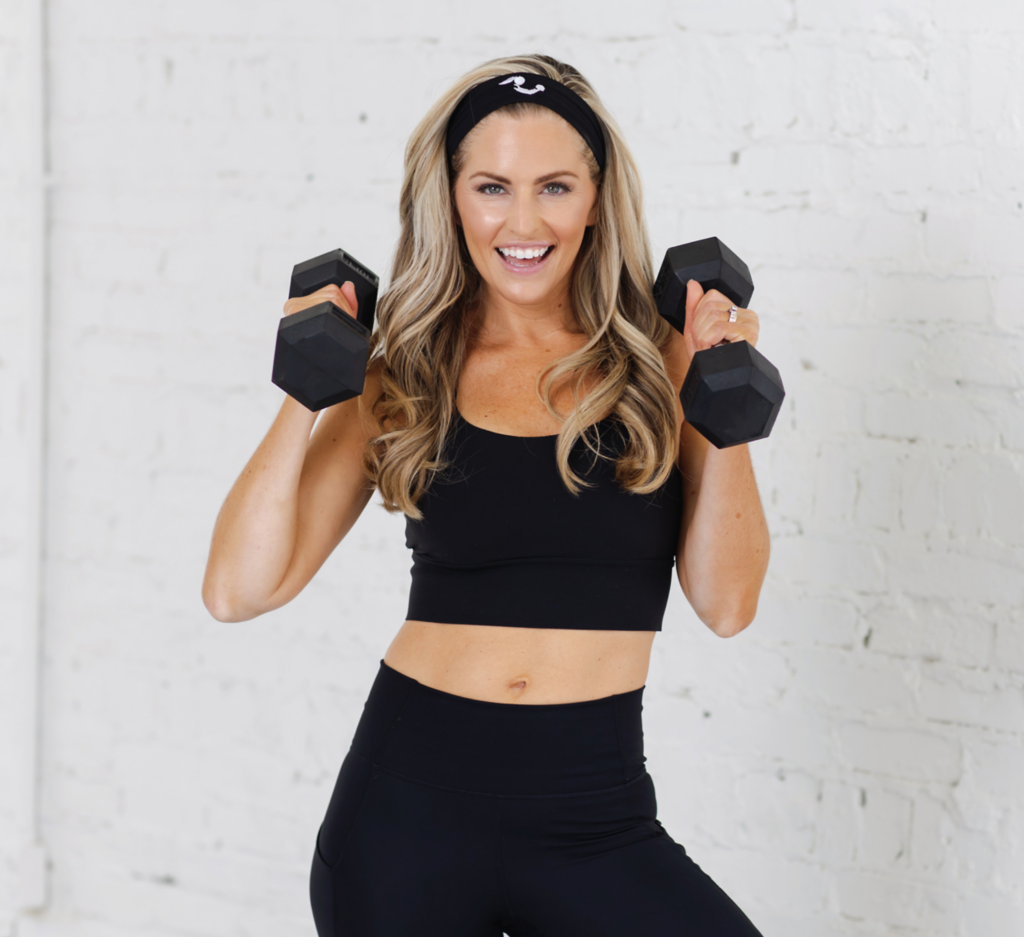
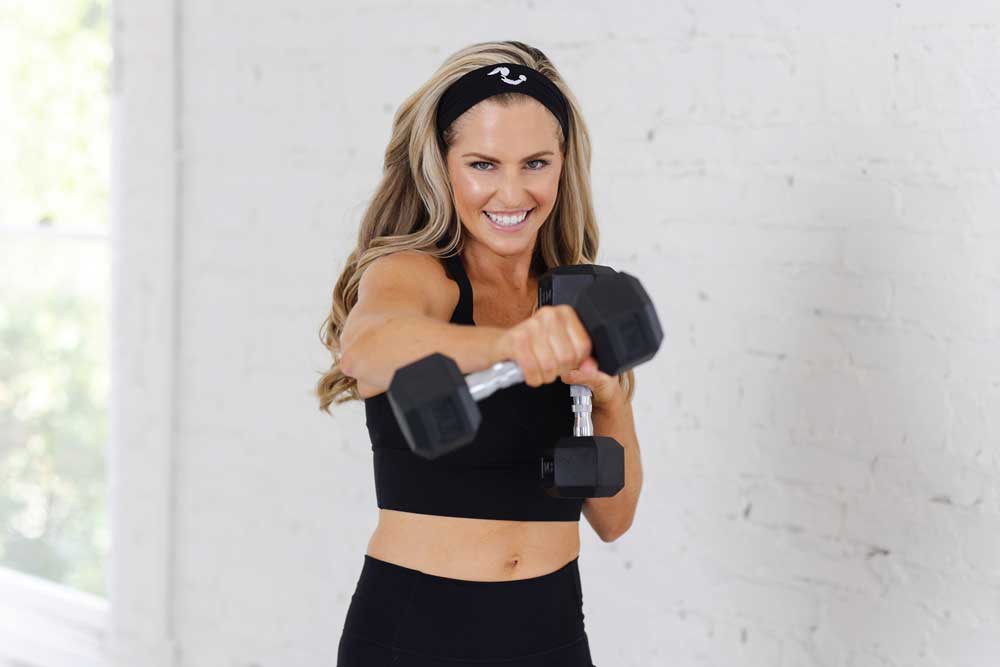
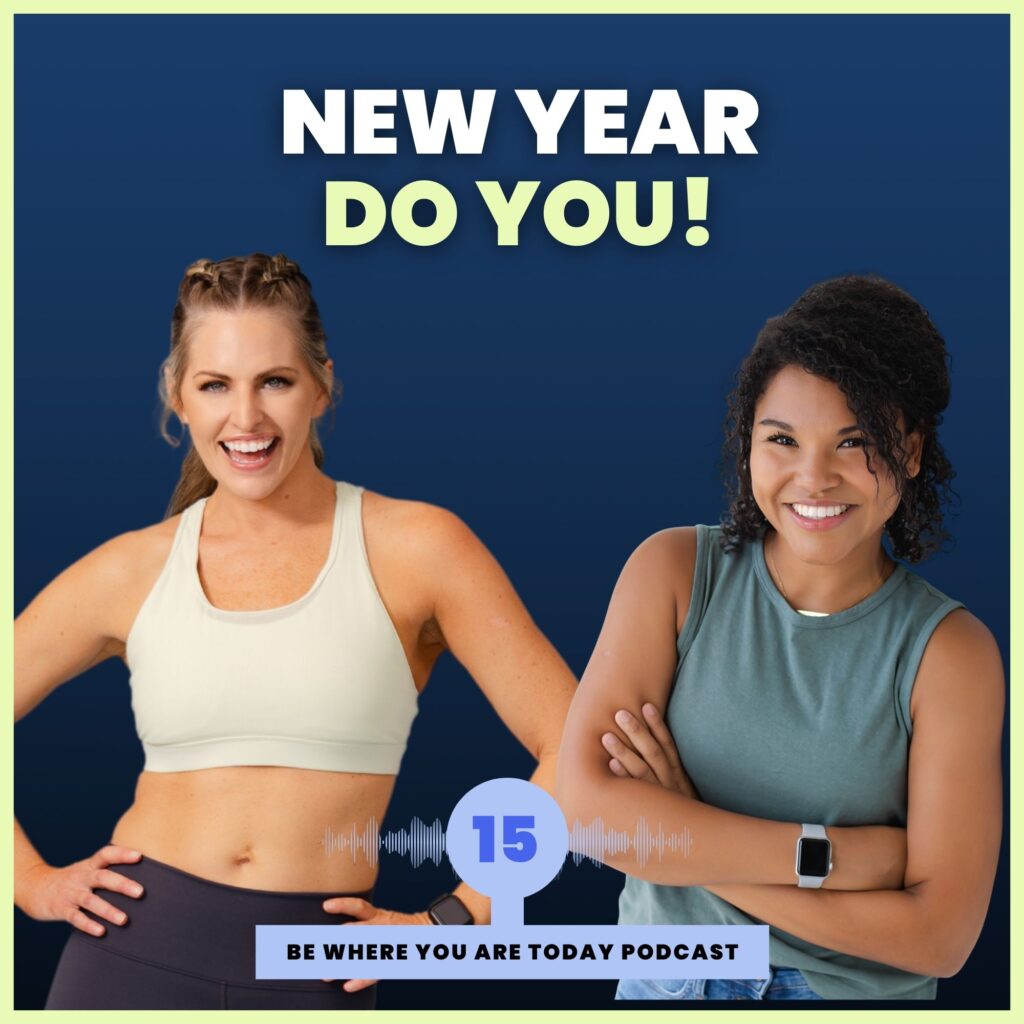
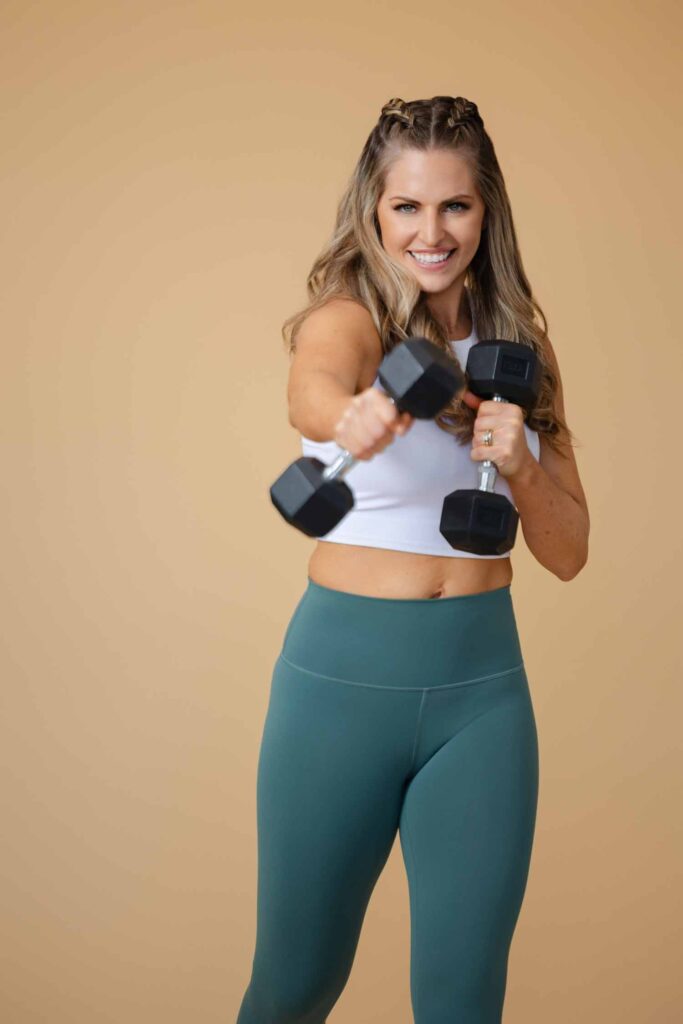
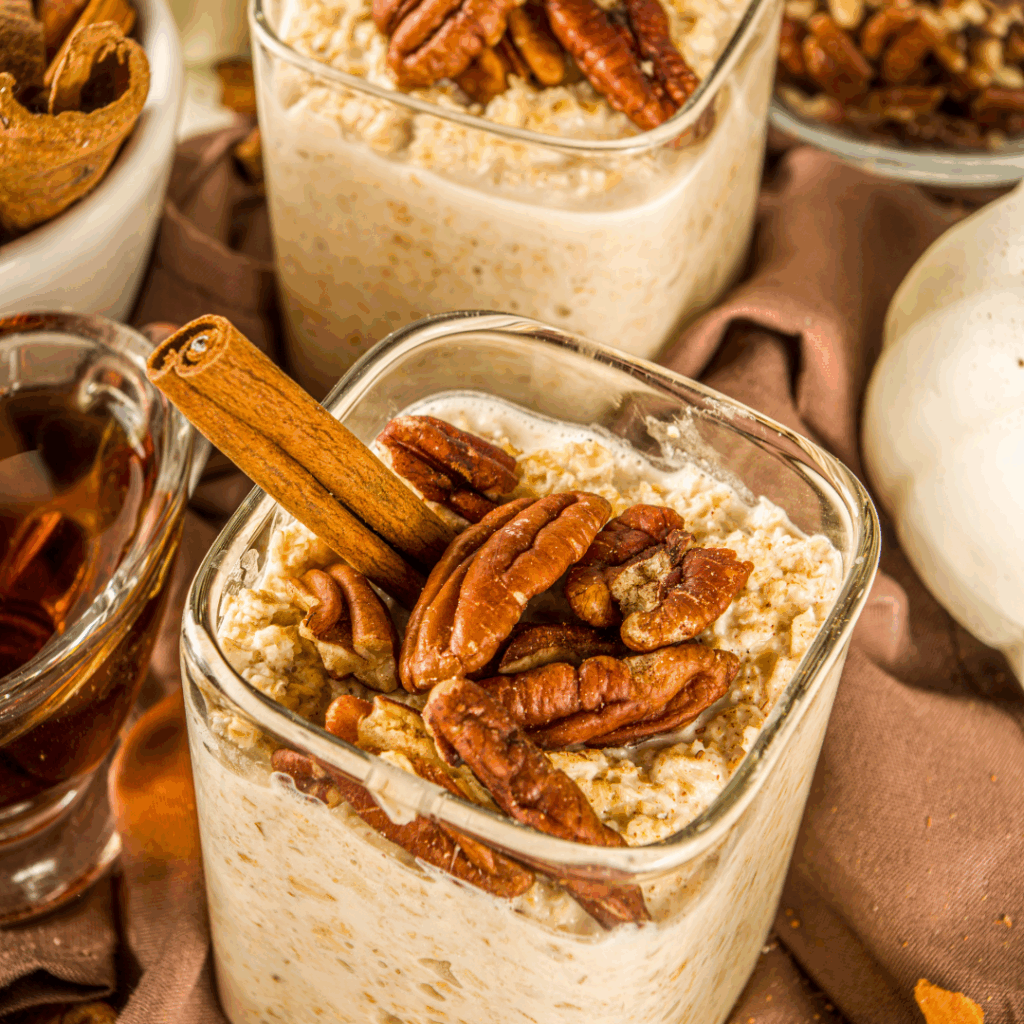
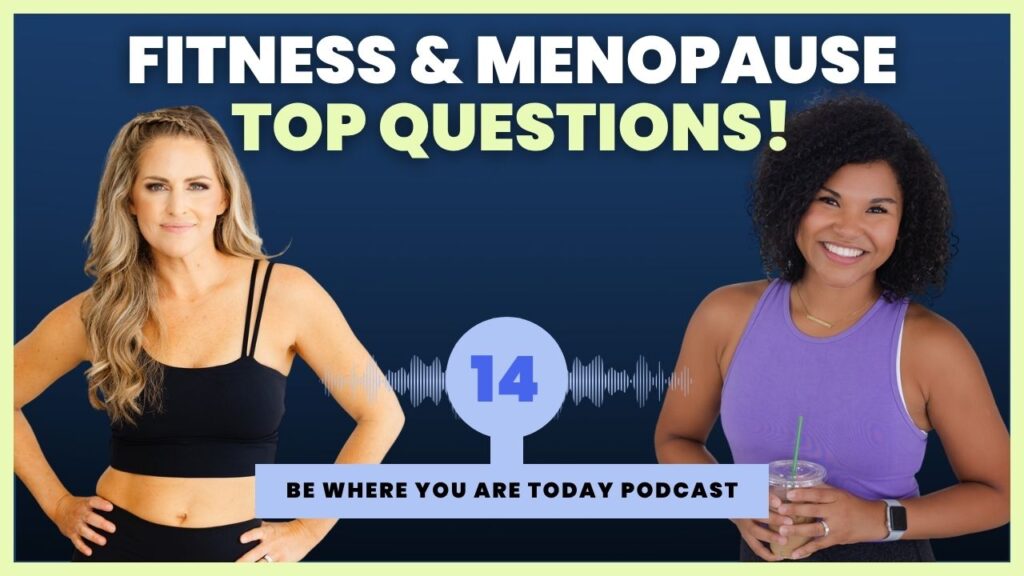
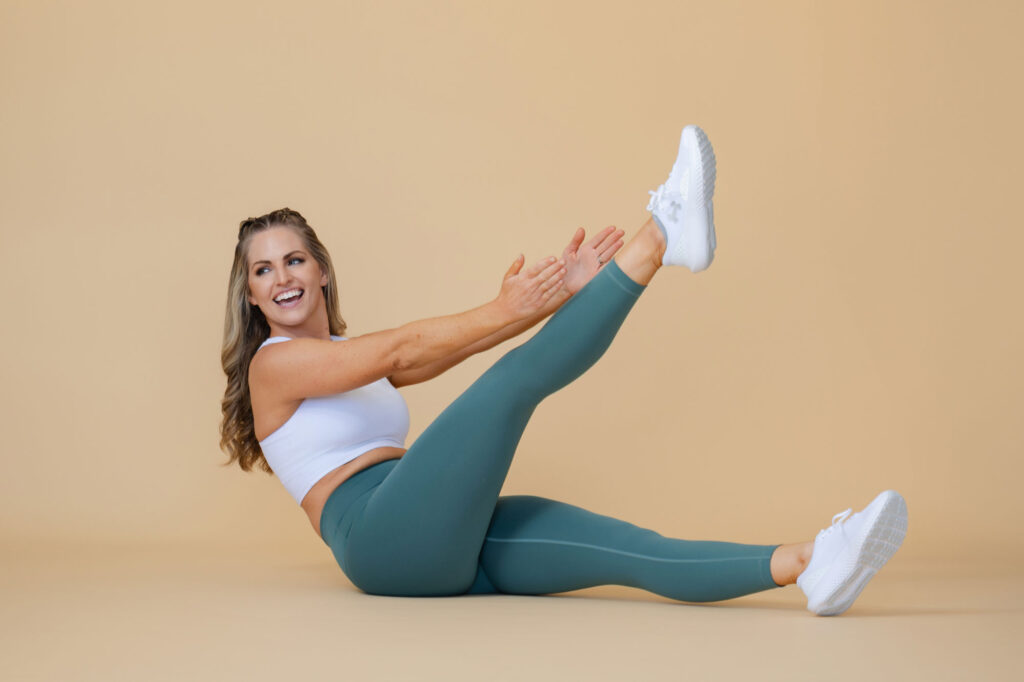
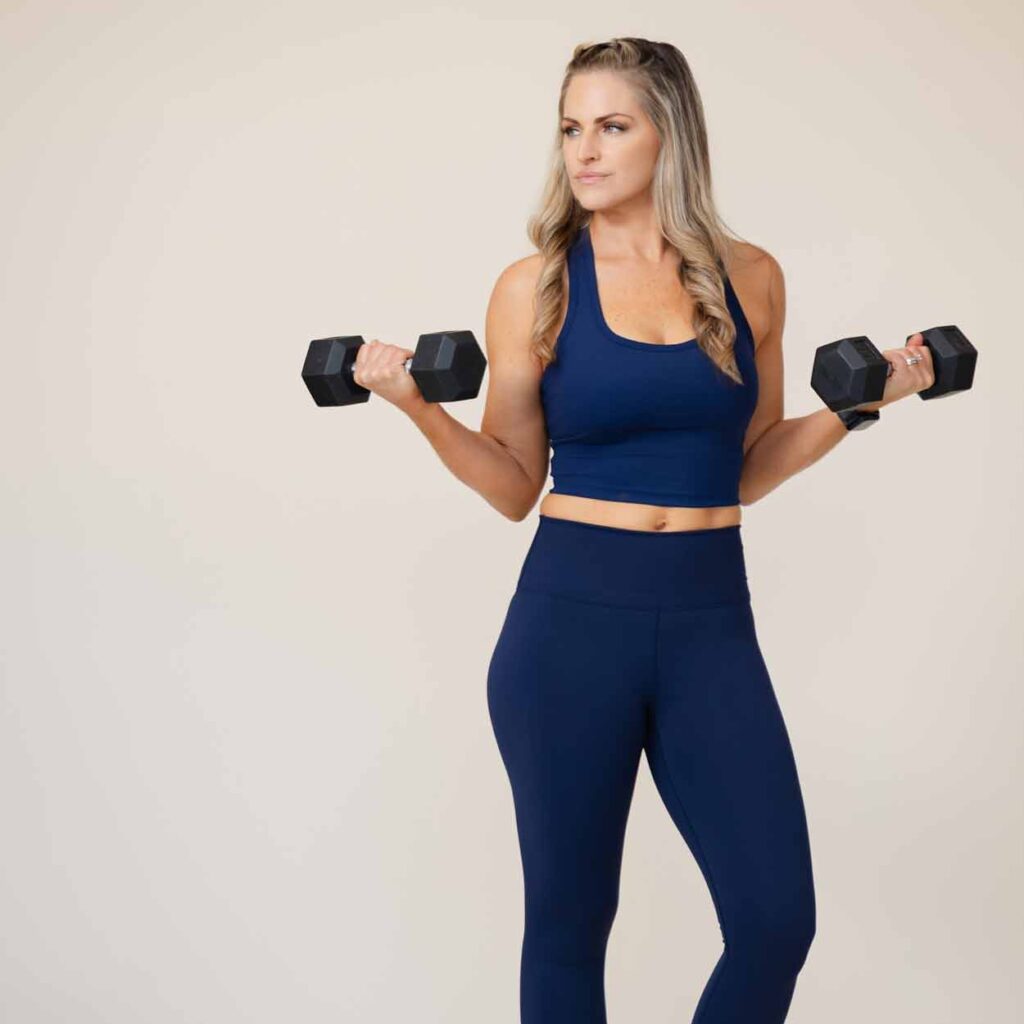
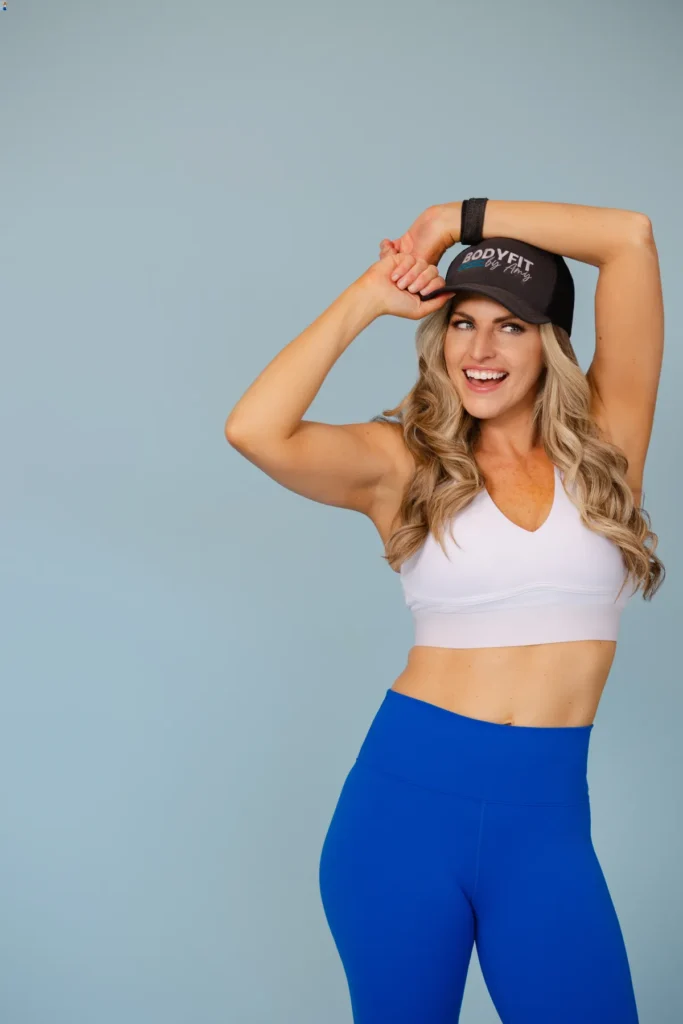

Leave a comment
Why are all your examples women???
Great article, even if biased!!
Appreciate the feedback! Nowadays, all my clients are women, so my mind automatically went to women examples. I edited the article to be gender neutral. The protein recommendations are the same for men or women, so the numbers themselves do not change.
What a great article thank you so much. I’m 77 years old female and weigh 168 I need to lose 40 pounds but I keep failing myself. I started doing your workouts and I love them, maybe that’ll motivate me to eat better, I hope so
Hi Pammy! You are not failing yourself – weight loss is so tough. Glad to hear you’ve started the Bodyfit by Amy workouts! Hang in there. 💕
What are your thoughts on whey protein powder in a smoothie? Is whey protein powder a good option too instead of a plant-based protein powder in a smoothie?
Great question, Andrea! Whey protein is a great option if you tolerate it without issue. I wrote an article answering the most common protein powder questions and I discuss whey and plant-based protein powders extensively: https://bodyfitbyamy.com/protein-powder-101-everything-you-need-to-know/
This is great information!! I was able to understand it all. Thank you 🙂
So glad you found it informative!
Very interesting thank you, I didn’t know about eating within 30 mins of a workout so will try this.
Glad you found it helpful! And, yep – eating within 30 minutes can be super helpful for those hoping to gain muscle mass!
I love this blog! It answered some of the questions I had for post-menopausal, I’m almost there (I HOPE) I’m one of those long cases of misery so symptomatic and what not but they’ve backed off for the first time this summer so I’m thinking (HOPING) I’m finally getting there after 11 years.
Thank you for sharing your knowledge, Vivian 🙂
I hope you get there soon, Amy!! Thanks so much for reading my article, and so glad you liked it! 🙂
Thank you Vivian, l have been a member for sometime and had a call with you way at the beginning for the tailored method.
I have to admit l am still not where l want to be with my nutrition,l have had a bit of a previous year.
I am going to try and tune in more to the lives and get back on track with my nutrition, I have really enjoyed this live and reading this article. Thank you 💜 ( also l havd made over night oats for morning)
So glad you enjoyed the LIVE and the article! Let me know how I can help you with your nutrition moving forward. 💕 And, thank you for being a BAC member!
Hi Vivian, loved the article. What are your thoughts on chocolate milk post workout?
I’ve often heard this recommended but thought I would ask an expert!
Following this question and Vivian’s reply 🙂 I used to be a marathon runner and had chocolate milk post-race every time…I don’t remember why but I know it was delicious 🙂
I love the good, accurate information y’all share. THANK YOU.
Thanks, Vivian, for the live session and for this article. Super informative.
Hi, I do your workout everty morning for about nearly a year. I am almost 58 years old,from Germany, I do interval fasting for abourt 3 years. I do my workout at abourt 7.00 in the morning and my first meal ist about 12/13 am so I do have my 16 hours fasting. I am not motivated to do the workout in the eventing because of time.
great article……protein is what has been missing from my diet and this has been so helpful in giving me ideas on how to in clued protein. thank you.
Thanks for this article–as always, balanced and informative. If I eat a protein meal right before working out, is that timing okay? Is it important for it to be either after or a full 1-2 hours before?
Hi Vivian
I am not into protein bars and powders. What else is good? Also, I don’t usually eat before a workout if I am working out in the morning. The most I may have is a handful of granola. What do you recommend?